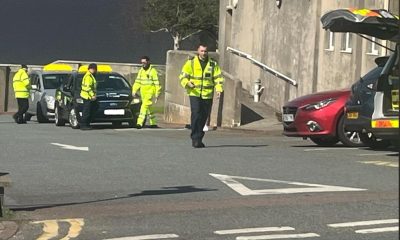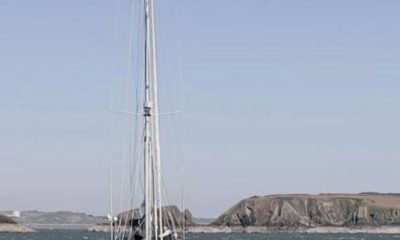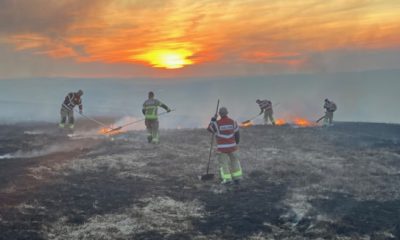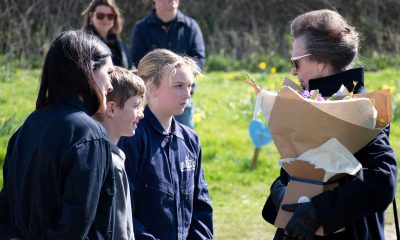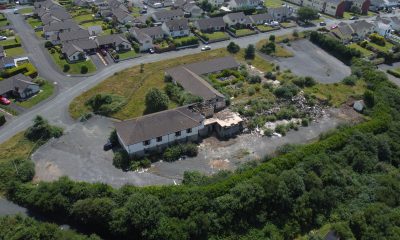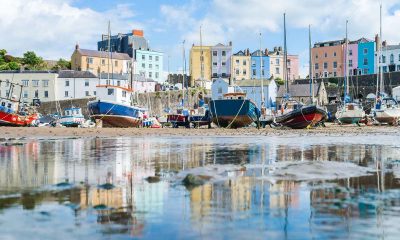Charity
Fishguard RNLI celebrates first female Coxswain in Wales, as charity marks 200th year
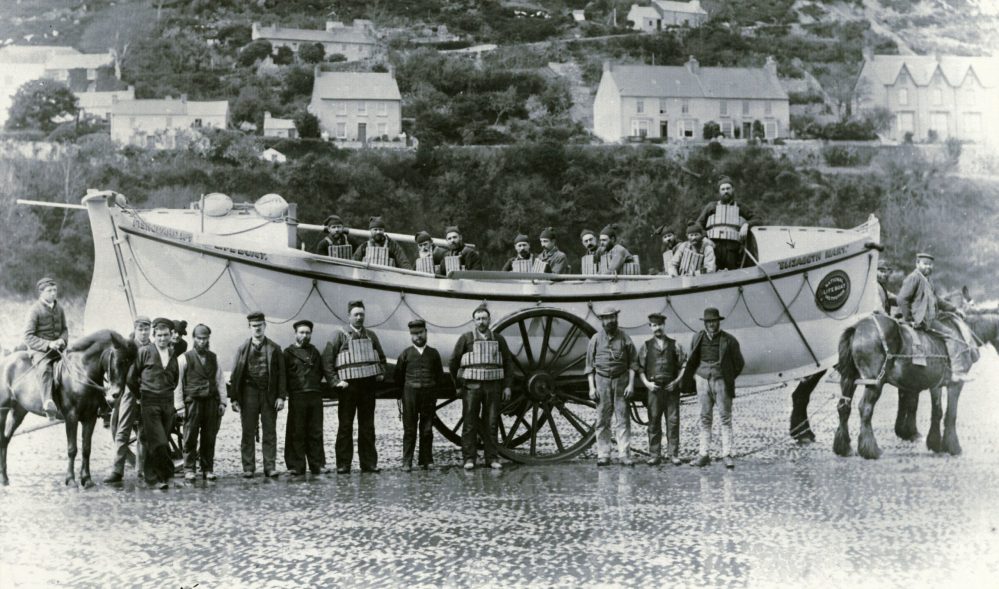
ON MONDAY, March 4, the Royal National Lifeboat Institution (RNLI) will celebrate 200 years of saving lives at sea. Fishguard RNLI Lifeboat Station is celebrating being both the oldest lifeboat station in Wales, as well as being the first Welsh station to have a female Coxswain.
On the day the charity turns 200, the RNLI is revealing its volunteer lifeboat crews and lifeguards in west Wales have saved an incredible 3,891 lives during its two centuries of lifesaving.
Since the charity was founded in 1824, its volunteer crews in west Wales have launched the lifeboats 14,872 times, saving 3,776 lives, while its lifeguards – who became part of the RNLI’s lifesaving service in 2001 – have responded to 8,865 incidents, saving 115 lives*. In total across the UK and Ireland, 146,452 lives have been saved by the RNLI – this equates to an average of two lives saved every day for 200 years.
Since 1824, the four lifeboat stations in Ceredigion have launched 4,848 times and saved 1,238 lives. In Pembrokeshire, the five stations have launched 8,563 times and saved 2,395 lives. Burry Port station in Carmarthenshire has launched 1,461 times and has saved 143 lives.
Fishguard Lifeboat Station on the far west coast of Pembrokeshire was the first lifeboat station to be established in Wales. Originally established in 1822, Fishguard’s first lifeboat was built by locals. In 1855, local inhabitants requested that the RNLI take over the station.
The station has also made RNLI history by being the first station in Wales to appoint a female Coxswain – Gemma Gill. Gemma has recently passed out as Coxswain and is thoroughly enjoying her new role.
Gemma joined the RNLI in 2001 serving as a volunteer for North Berwick and Aberystwyth RNLI before becoming a full-time staff member.
Gemma said: ‘The first person to take me to sea on a lifeboat was a woman called Rhona, and she told me “don’t let other people decide what you’re capable of,” which has always stuck with me.
‘While I believe it’s a matter of skills and experience rather than gender, I recognise the significance of this milestone.
‘We’ve come a long way from the image of a lifeboatman in his oilskins, and, as the first woman to become an RNLI coxswain in Wales, I hope to inspire other women and girls to join the lifeboat crew.’
Although not officially part of the early lifeboat crews, women have always played an active role in the work of the RNLI, from the ‘lady launchers’ who played key roles at lifeboat stations assisting in the launching and recovery of vessels, to fundraisers such as Marion Macara who helped to organise the first recorded charity street collection in Manchester in 1891.
Throughout its history, Fishguard lifeboat station has been awarded 28 medals. One gold, 18 silver and nine bronze. Today the station operates a D-class inshore lifeboat Edward Arthur Richardson as well as a Trent class Blue Peter VII.
While much has changed in 200 years, two things have remained the same – the charity’s dependence on volunteers, who give their time and commitment to save others, and the voluntary contributions from the public which have funded the service for the past two centuries.
Jo Partner, RNLI Head of Region for Wales says: ‘I am immensely grateful to everyone who is involved with the charity across Wales – our volunteers, supporters and staff. Today is a hugely significant day in our history and an occasion we should all be very proud of. I know there are lots of events being planned across Wales to mark this very special day and I hope people enjoy being part of this special piece of history.
‘I would like to take this opportunity to say thank you to all those who play a part in making the RNLI the proud organisation is it today – which really is a cause for celebration.’
RNLI Heritage Archive and Research Manager, Hayley Whiting, says: ‘The RNLI’s founder, Sir William Hillary, witnessed the treacherous nature of the sea first-hand when living on the Isle of Man and he wanted to take action. His first appeal to the nation in 1823 did not have the desired result but, thankfully, he persevered and gained the support of several philanthropic members of society, who put their names to the charity at a meeting in the City of London Tavern on 4 March 1824.
‘Twelve resolutions were passed at that meeting, the core of which still stand as part of the RNLI’s Charter 200 years later. This shows how the RNLI’s values and purpose have remained unwavering for 200 years, despite the social and economic changes and challenges of the past two centuries.
‘Hillary’s vision was ambitious and forward-thinking, and no doubt he would be extremely proud to see the charity he founded still going strong today, and to see how much it has achieved.’
The charity has a history of innovation, and adapting to challenging circumstances, such as:
Lifejackets: In 1861, Whitby lifeboat crew launched six times to rescue stricken vessels in a storm, but on their sixth launch a freak wave capsized the lifeboat and all but one of the crew were lost. The sole survivor was Henry Freeman, who survived because he was wearing a new design of cork lifejacket. After this event, the cork lifejacket became more widely adopted by lifeboat crews.
Fundraising: In 1886, 27 lifeboat crew members from Southport and St Annes lost their lives while trying to rescue the crew of the Mexico. A public appeal was launched, driven by local man Charles Macara. An 1891 appeal raised £10,000 in two weeks. On 1 October, Charles and his wife Marion organised the first Lifeboat Saturday. Bands, floats and lifeboats paraded through the streets of Manchester, followed by volunteers collecting money. More than £5,000 was taken on the day, which was the first recorded example of a charity street collection.
Lifeboats: In 1914, over 140 people were saved when the hospital steamship Rohilla was wrecked. The ship had been en route to Dunkirk to help wounded soldiers but was broken up when it ran aground on rocks near Whitby. Five lifeboats battled terrible seas to reach the ship. A motor lifeboat (the first of its kind) from Tynemouth, took the last 50 people on board. In total, 144 people were saved by the crews, who worked for over 50 hours in atrocious conditions. The motor lifeboat proved its capabilities and became more widely accepted by lifeboat crews after this event.
Wartime: When the First World War broke out, many lifeboat volunteers were called away to fight. The average age of lifeboat crews at home increased to over 50. During 1914-18, RNLI lifeboats launched 1,808 times, saving 5,332 lives. In 1939, young lifeboat volunteers were called away again to war. By the end of the Second World War, RNLI crews had saved 6,376 lives around the coasts of Britain and Ireland.
In 1940, 19 RNLI lifeboats were used to evacuate troops from Dunkirk. Two had RNLI crews onboard, while the others were crewed by the Royal Navy. The lifeboats and their stand-in crews saved thousands of lives while being shelled and bombed for days.
Throughout its bicentenary year, the charity is running events and activities to remember its important history and celebrate the modern lifesaving service it is today, while hoping to inspire generations of future lifesavers and supporters.
A Service of Thanksgiving to mark 200 years of the RNLI will take place at Westminster Abbey on 4 March 2024 at 11.30am. It will be attended by representatives from RNLI lifesaving communities around the UK and Ireland.
For further information about the RNLI’s 200th anniversary, visit RNLI.org/200.
*Statistics from RNLI Operational Data from 4 March 1824 to 31 December 2023 inclusive. A life saved shows how many of the people helped by the RNLI would have lost their life had the RNLI not been there.
Charity
Rescue woman backs Mayday campaign as RNLI reveals rescue figures for Wales
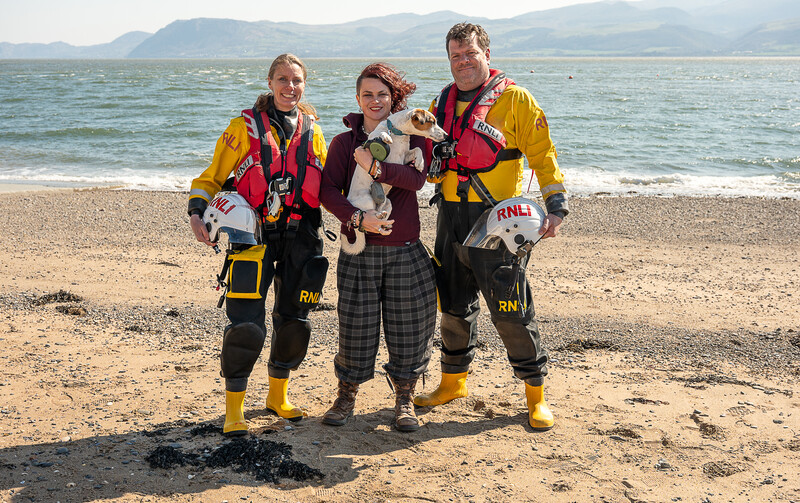
A WOMAN rescued by Beaumaris RNLI last year has reunited with the volunteer crew who saved her, as she supports the charity’s Mayday campaign showing lifeboats in Wales launched over 1,043 times, saving 53 lives last year.
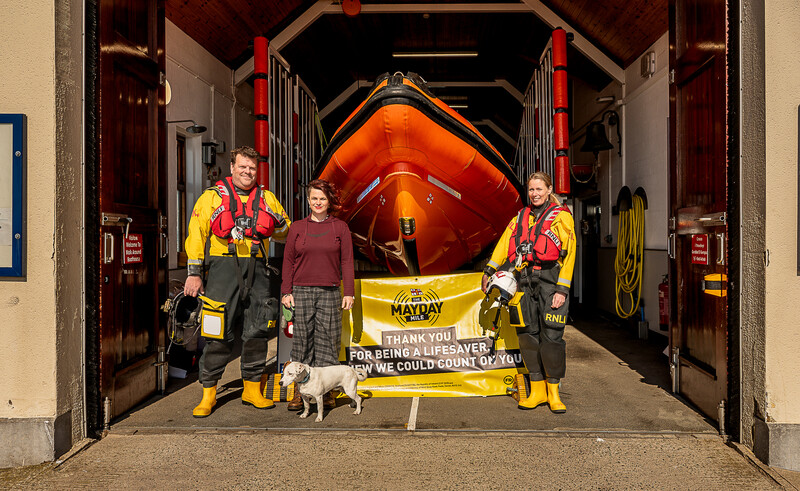
Across the UK and Ireland the charity’s lifeboats were launched over 9,100 times in 2024, making it the fourth-busiest year in the charity’s 201-year history. Welsh RNLI lifeboat stations’ total number of launches decreased from 2023, however the number of lives saved rose from 38 in 2023 to 53 in 2024.
Angle, The Mumbles and Tenby RNLI had the most launches. Out of the total 1,043 launches in Wales, 719 were by Inshore Rescue Boats and the further 324 were All-Weather Lifeboat launches. Over 96% of all lifeboat launches in Wales in 2024 were within 5 nautical miles of the Welsh coast, and the majority of these shouts were to people in difficulty in the water and to assist motorboats. RNLI volunteer lifeboat crews spent over 1,500 hours at sea, giving up their time to help those in need.
Flint RNLI saved 5 lives last year with neighbouring station Rhyl RNLI launching 47 times and aiding 47 people. Llandudno and Conwy lifeboats launched a total of 66 times, saving 4 lives. On the Isle of Anglesey, Trearddur Bay, Moelfre, Holyhead and Beaumaris saved 8 lives, launching 213 times and aiding 127 people.
In Gwynedd RNLI lifeboats from Porthdinllaen, Abersoch, Pwllheli, Criccieth, Barmouth and Aberdovey launched 121 times, aiding 126 people and saving 2 lives. In Ceredigion, Borth, Aberystwyth, New Quay and Cardigan launched 99 times and aided 56 people.
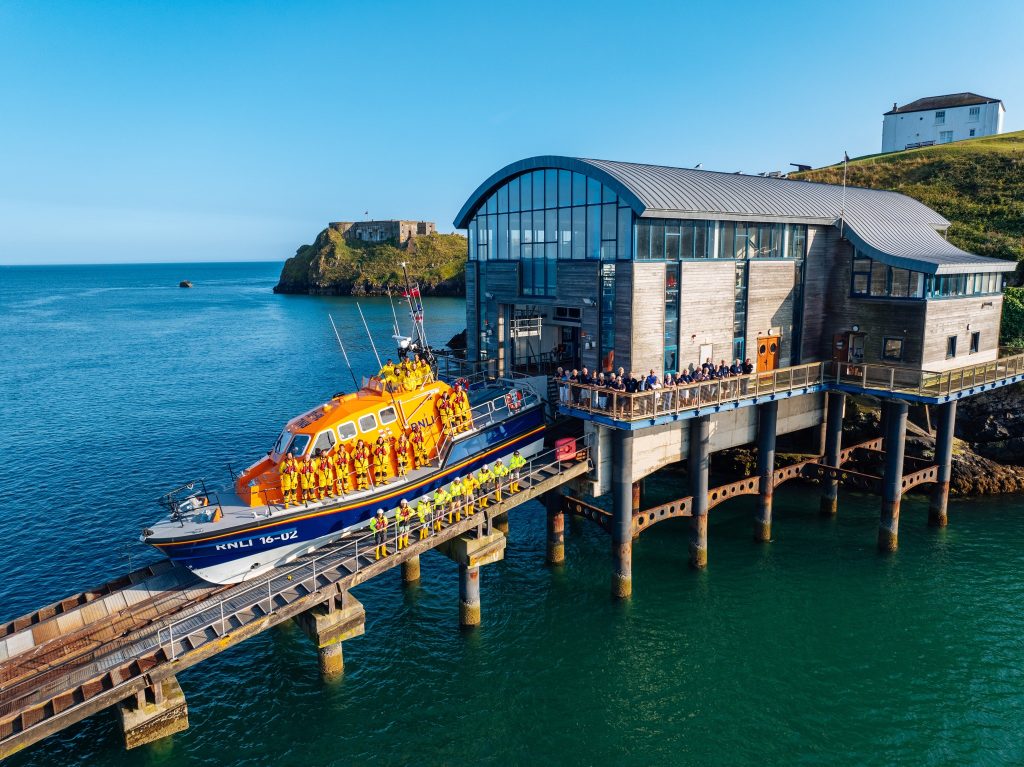
In Pembrokeshire, Fishguard, St Davids, Little & Broad Haven, Angle and Tenby lifeboats saved 13 lives, launched 233 times and aided 152 people. At Burry Port Lifeboat Station, the boats launched 39 times, aiding 26 people. In Swansea, Horton & Port Eynon and The Mumbles launched a combined 104 times, aiding 119 people with The Mumbles RNLI saving a life.
Port Talbot RNLI launched 25 times and aided 17 people. In Porthcawl the volunteer crew saved an incredible 16 lives, launched 71 times and aided 91 people. In the Vale of Glamorgan, Barry Dock and Penarth Lifeboat Stations launched 80 times, aided 77 people and saved 3 lives.
Beaumaris RNLI launched 45 times last year, aiding 27 people and saving 3 lives. Emily Morus-Jones, was one of those rescued by the Beaumaris RNLI volunteers in September last year, she says:
‘The Beaumaris RNLI crew members took really good care of me when I broke my knee whilst cooling down from a run with my dogs on the beach.
It was early afternoon on Monday 2 September when Emily was on the beach in the Manai Strait area of Bangor near the Faenol Estate.
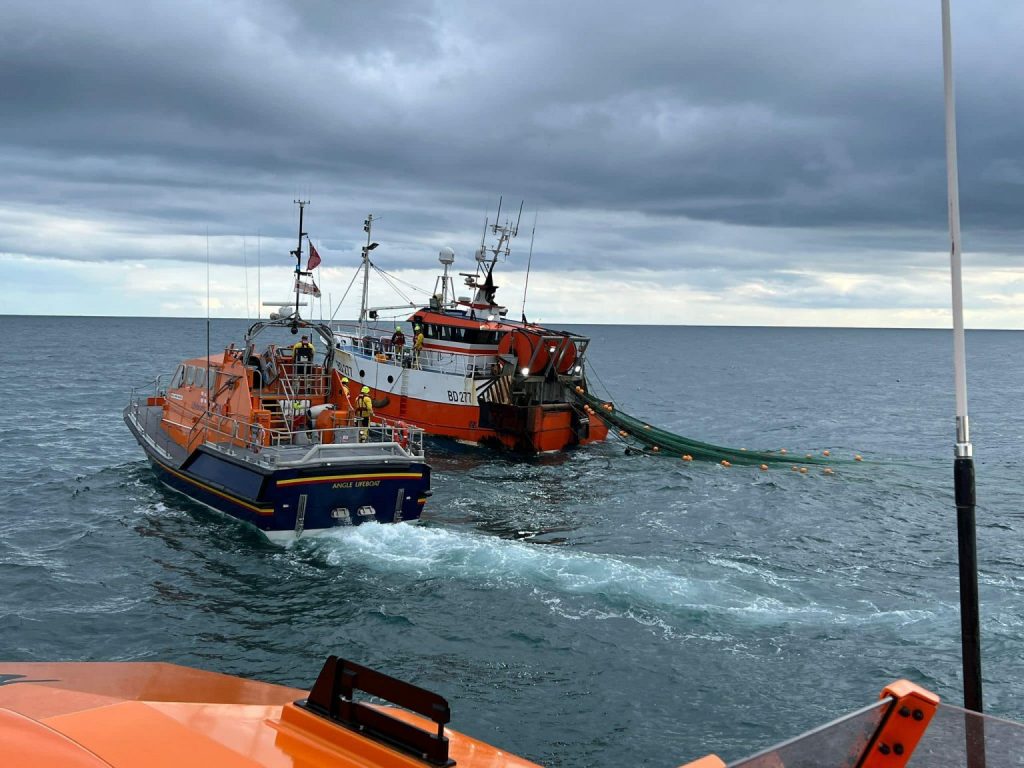
‘I skidded on some seaweed hitting rocks and then fell awkwardly onto my knee. I felt immediate pain and all I could do was scream. I started worrying about how and if I’d be located, knowing the tide was coming in.
‘I know the area well, when the tide comes in there’s no beach. It’s also very fast-moving water with multiple rip currents. My initial thought was I could try and drag myself the way I came, but I tried to move and there was absolutely no way – it was just agony. I was also in shock, I knew then I was in a very serious situation.
‘Thank god I had my phone and was able to call for help. When the RNLI lifeboat arrived I remember thinking; “It’s pretty good that if you’re freezing cold and in agony on the side of a beach by yourself, that volunteers will turn up in a lifeboat and take you to safety.”
‘I’m so glad the RNLI is a thing we all have because the alternative of being alone, injured and with no chance of anyone coming to save you is utterly terrifying.
‘It was really special to reunite with the crew who saved me so I could express my gratitude in person. I encourage that people support the Mayday campaign, so that these lifesavers can keep doing what they do best.’
With demand for its lifesaving services at a high, the charity is putting out its own ‘Mayday’ call, and urging the public to get involved with its biggest national fundraising event, the Mayday Mile.
Participants are challenged to cover a mile a day for the month of May, with every penny raised helping to make sure that the charity’s lifesavers have everything they need to keep people safe this summer and beyond. Running a 24/7 lifesaving service is expensive and costs are rising – in 2023, it cost over £190M to run the RNLI.
Gwen Beeken, Beaumaris RNLI volunteer crew, says: ‘Usually we are heading out to respond to Mayday calls, but now we’re the ones asking for help. Thousands of people get into danger on and around the water each year and need our help, but everything we do is only possible thanks to the generosity of our supporters.’
Whether you choose to walk, jog, hop or skip, a mile every day in May will help raise vital funds for RNLI lifesavers, so that they can continue to keep people safe at sea.
Gwen added: ‘It’s clear from these new figures that demand for our services remains high, with our lifesavers dropping everything to run to the lifeboat station when the call comes. We’re now heading towards our busiest time of year, so we’re putting out our call for help to raise the funds which will help keep our lifesaving service going today, and allow us to be there when we’re needed most.’
Emily says: ‘I’m so grateful to all the RNLI volunteers who helped rescue and look after me that day. They made sure to get me out of the cold, they kept me warm and dry and as comfortable as possible whilst maintaining a cheerful demeanour to help me distract me from the pain.
‘It’s been about 6 months since my injury and my rehabilitation has been going well. If you’re looking for a way to support this special charity and their lifesaving work, why not sign up for their Mayday Mile or donate.’
To sign up for the Mayday Mile, or to make a donation in support of the RNLI’s lifesavers, visit RNLI.org/supportMayday
Charity
Inclusive volunteering through Pembrokeshire Coast Pathways project
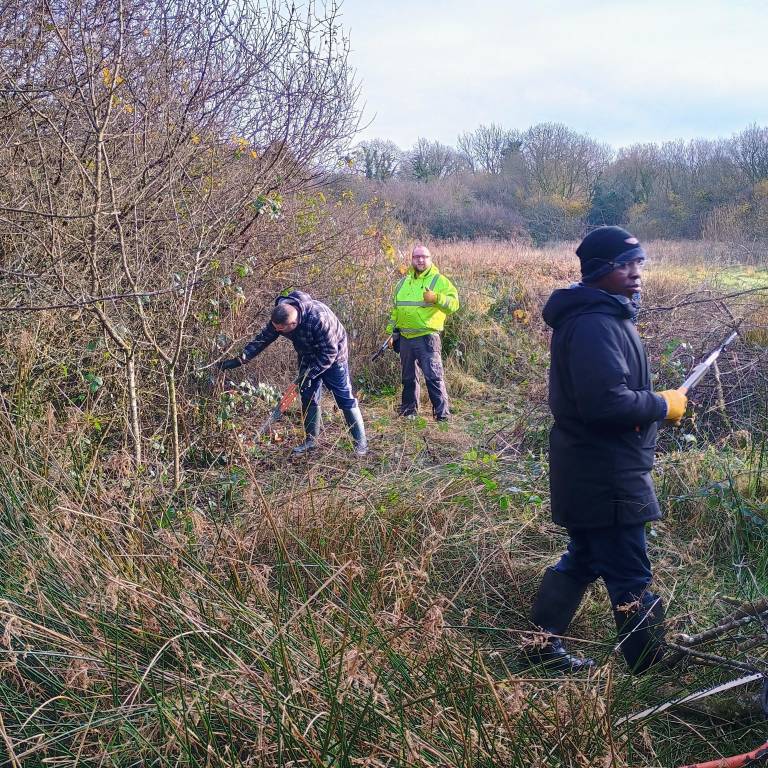
THE PEMBROKESHIRE Coast Charitable Trust has received generous support from the Swire Charitable Trust to expand inclusive volunteering opportunities across the Pembrokeshire Coast National Park.
The Pathways project enables a broad range of individuals from local communities to participate in supported outdoor volunteering activities. This initiative prioritises accessibility and inclusivity, offering opportunities for individuals who may not otherwise be able to engage in volunteering. Through tailored activities and the support of experienced lead volunteers, the project provides a safe and welcoming environment for participants to learn new skills and work collaboratively.
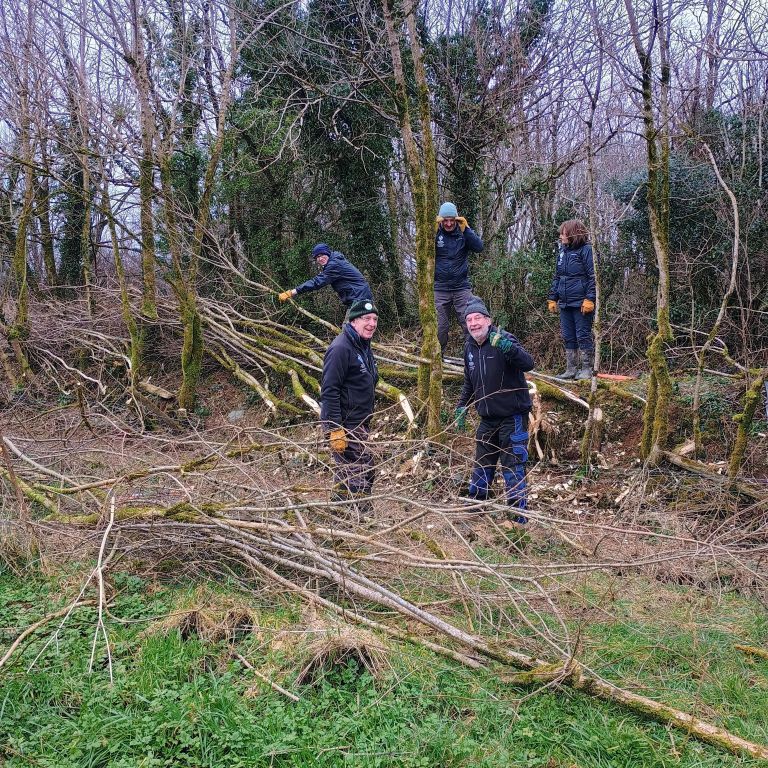
Graham Peake, Pathways Project Lead, said: “The Swire Charitable Trust’s support has been instrumental in ensuring that more people can experience the benefits of volunteering while contributing to conservation and heritage projects across the National Park. Through Pathways, we are not only enhancing our natural environment but also fostering a sense of community and belonging.”
In 2024, the Pathways project delivered 86 volunteering sessions, contributing a remarkable 825.5 volunteer days across more than 30 sites in Pembrokeshire. Volunteers took part in a diverse range of practical conservation and heritage tasks. These included community archaeology site work, where volunteers cleared gorse and helped preserve ancient monuments, as well as hedge laying and hedge bank restoration at St Brides. Other activities involved scrub clearance and coppicing at Brynberian and Newport, removing invasive species such as Himalayan balsam, and tree planting to enhance biodiversity.
Volunteers also worked on habitat creation by planting wildflowers to improve meadow ecosystems and undertook path maintenance and access improvements to support public safety and conservation work. The project further engaged in specialist activities, including fungal identification walks at Tŷ Canol National Nature Reserve and the installation of a new notice board at St Govans, Castlemartin.
Pathways has had a profound impact on the local community, providing opportunities for over 30 volunteers to contribute their time and skills. Evaluations conducted between November 2024 and January 2025 highlighted the project’s social, physical, and mental health benefits. Volunteers consistently reported increased well-being, a greater connection to nature, and the satisfaction of giving back to their community.
Mitch Hill, Pathways Project Lead, said: “One of the most rewarding aspects of this project has been witnessing the personal growth of our volunteers. Many have gained new skills, increased their confidence, and even transitioned into further volunteering roles, employment, or education.”
In addition to hands-on conservation work, the project provided vital training for lead volunteers, including mental health awareness, first aid, and equality, diversity, and inclusion training. This investment in volunteer development ensures the sustainability and long-term impact of the programme.
As the project grows, Pathways aims to strengthen partnerships with local organisations, including Mind Pembrokeshire and community groups, to support an even more diverse range of volunteers. It will also broaden its impact on nature recovery through collaboration with the National Trust, the Wildlife Trust, and other conservation partners.
Katie Macro, Director of the Pembrokeshire Coast Charitable Trust, concluded: “We are incredibly grateful to the Swire Charitable Trust for making Pathways possible. Their support has enabled us to reach more people, deliver meaningful conservation work, and create lasting benefits for both the environment and the local community.”
Visit www.pembrokeshirecoast.wales/volunteering to find out more about Pathways and other volunteering opportunities in the National Park.
Charity
Royal visit celebrates Pembrokeshire charity’s community impact
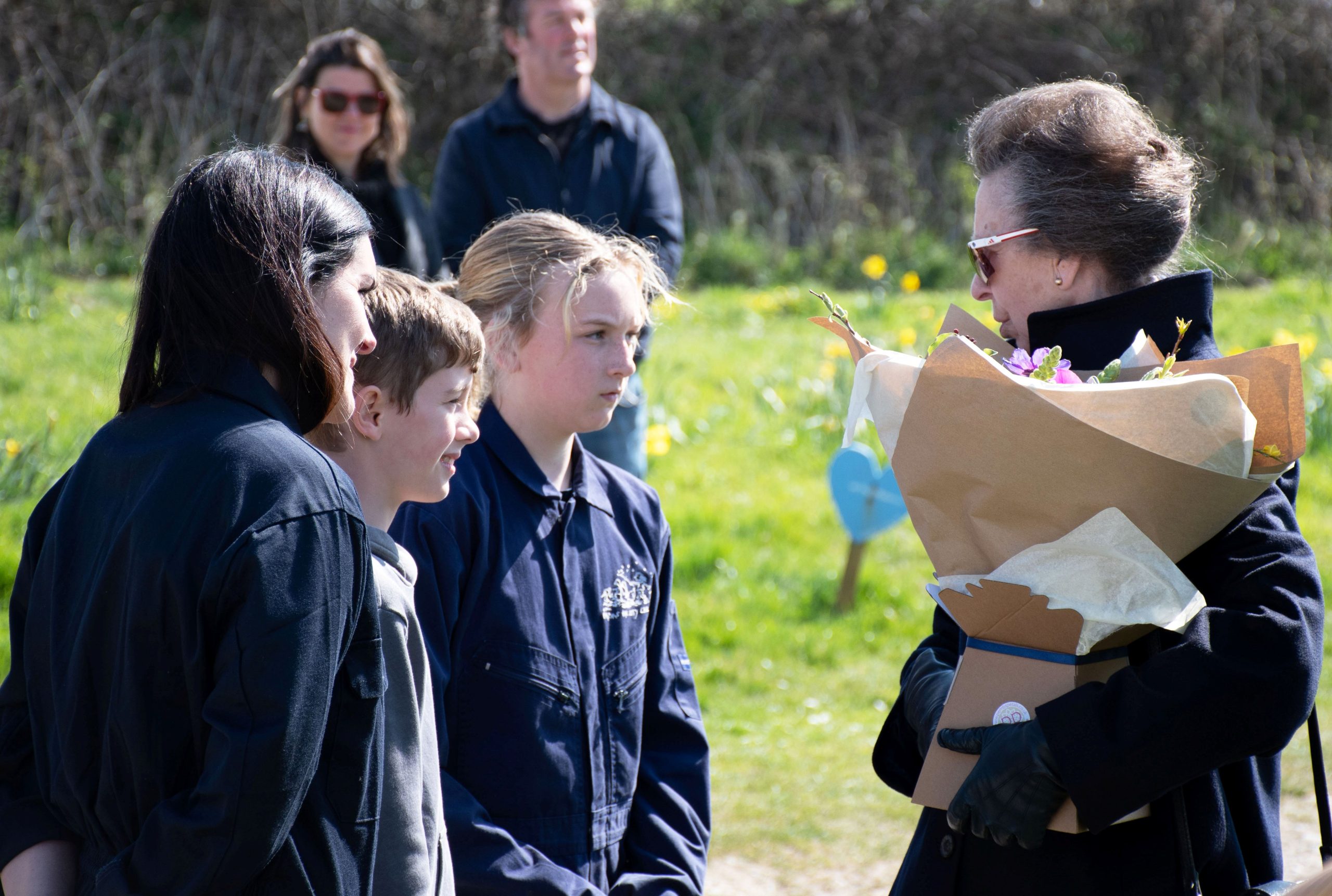
STAFF, volunteers and visiting pupils at Lower Treginnis Farm were delighted to welcome a very special guest on Wednesday (April 2), as Her Royal Highness The Princess Royal visited the site in support of the charity Farms for City Children.
The Princess Royal, who has served as Patron of the charity since 1991, spent the afternoon touring the farm, which lies just outside St Davids and is the most westerly farm in Wales. It was her fourth visit to the site since first attending in 2010.
Farms for City Children was founded by author and former Children’s Laureate Sir Michael Morpurgo and Lady Clare Morpurgo. The charity provides immersive week-long farming experiences for urban children, helping them connect with nature, food production and rural life.
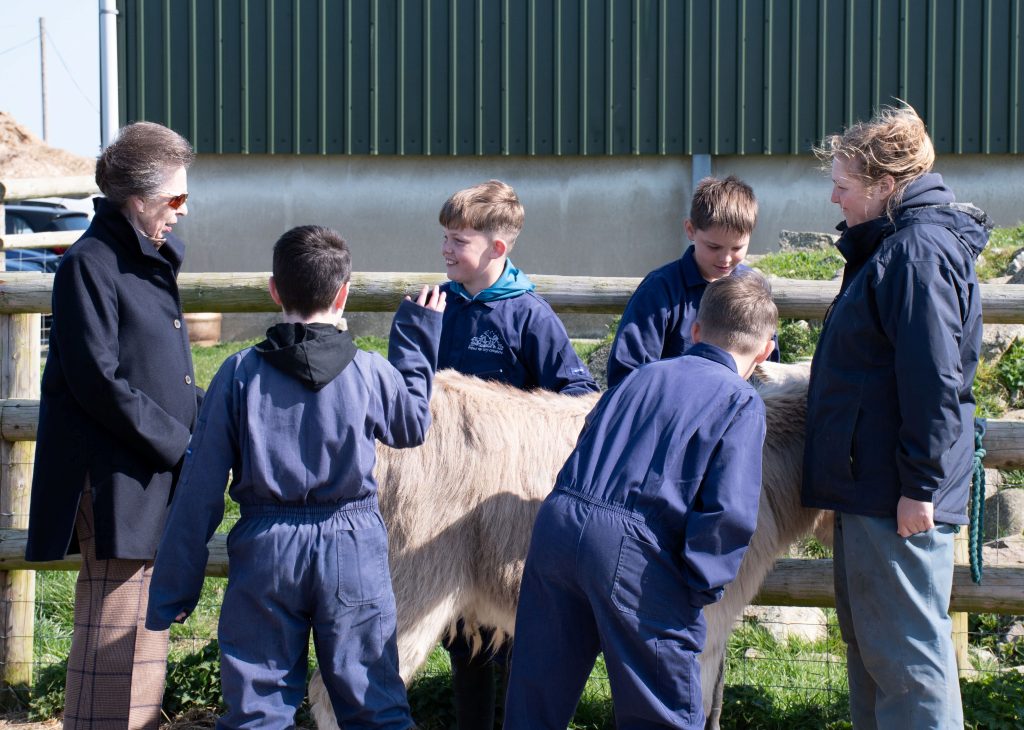
During the visit, The Princess Royal met children from Pembroke Dock Community School as they took part in hands-on farm activities including grooming donkeys, feeding rare-breed piglets, and planting vegetables in the market garden.
She also joined the children for a coastal workshop led by Câr y Môr, Wales’ first regenerative seaweed and shellfish farm, which operates just off the nearby shoreline.
Her Royal Highness was accompanied on her tour by Gethin Jones, Farm School Manager, and later met members of The Friends of Treginnis—a local fundraising group that has supported the charity since 1991. Over the past three years, the group has raised more than £30,000 to help schools from across Pembrokeshire, including Pembroke Dock Community School, take part in the farm’s week-long programmes.
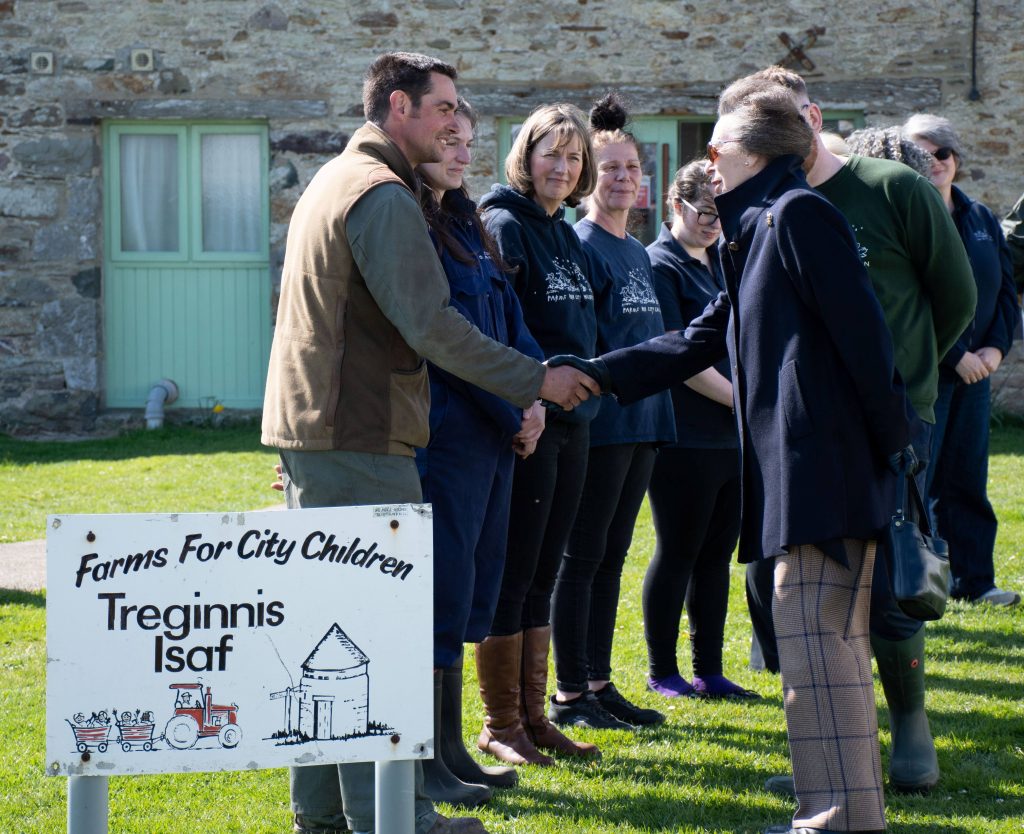
Before departing, The Princess Royal was introduced to members of the charity’s staff and to Aled Davies, the farm’s local partner farmer. She was then presented with a gift of fresh farm produce by two pupils, Erin Hubbard and Jack Kinnard.
Tim Rose, Head of Operations for Farms for City Children, said: “We were delighted to welcome The Princess Royal to Lower Treginnis and to share the experience of being ‘farmers for a week’ with her. Her visit was greatly enjoyed by everyone at the farm and it was our pleasure to be able to show her how the work of the charity interacts with so many different aspects of the Pembrokeshire community.
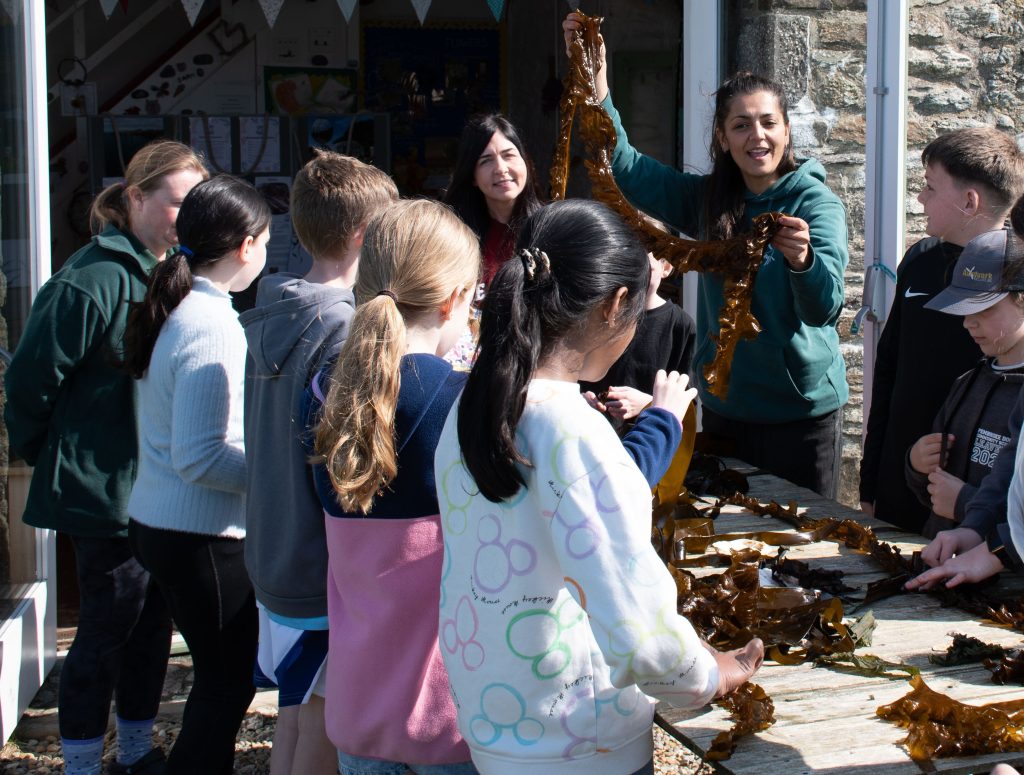
“We are hugely appreciative of Her Royal Highness’s continued support and enthusiasm for the work that we do.”
-

 Community7 days ago
Community7 days agoFuneral arrangements confirmed for popular local entertainer, Matt Baker
-

 Business5 days ago
Business5 days agoSpaceX eyes Milford Haven for new UK facility
-

 Crime5 days ago
Crime5 days agoPembrokeshire farm worker accused of threatening to burn employer’s farm
-

 Crime5 days ago
Crime5 days ago‘Yeah but no but’ insult to female officer lands Monkton man with court fine
-
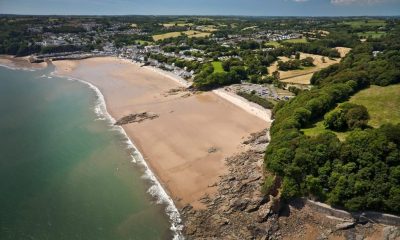
 Crime6 days ago
Crime6 days agoPembrokeshire beach dog ban enforcement changes expected
-

 Features5 days ago
Features5 days ago‘We weren’t wild. We were unprotected’: A generation groomed and forgotten
-

 Community6 days ago
Community6 days agoSpectacular evening of music at Ysgol Greenhill
-

 Crime4 days ago
Crime4 days agoLeaked messages reveal shocking culture at HMP Parc amid misconduct probe








